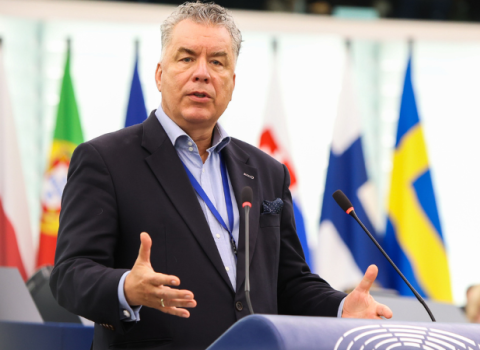In early 2023, in the wake of recent disasters, Eureka’s Turkish Chair proposed an initiative to reinforce disaster resilience through international collaborative innovation. Eureka’s network expressed solidarity with the efforts of governments, non-profit organisations and companies to prepare for, respond to and recover from disasters, and a collective effort was made to boost international research and development that could help vulnerable communities.
This topic resonated with Eureka’s network representatives, irrespective of their region or continent, as no country is immune to disasters; in 2023 alone, 86,000 people were killed and a further 7.7 million people were displaced by sudden-onset disasters (such as storms, floods, wildfires, earthquakes, volcanoes and tsunamis) and slow-onset hazards (like droughts, desertification, sea-level rising and water salinisation). Climate change is forecast to increase the frequency and magnitude of disasters in the coming years. In Europe, most recently, we have seen its impact in the form of severe flooding in Spain.
To spur innovation in this field, Eureka established a taskforce who met regularly to define an appropriate response. Together, they brainstormed how existing products, processes and services could be repurposed or re-engineered to prepare for, respond to and recover from disasters.
As a result, ministries and funding agencies in Austria, Belgium (Flanders and Wallonia), Canada, Chile, Czech Republic, Denmark, France, Lithuania, Singapore, South Africa, South Korea, Spain, Türkiye and the United Kingdom pooled resources through a Network projects call to fund some of the best expertise globally working in the disaster resilience domain.
Achieving resilience through innovation projects
Seven months on, the call for disaster resilience, recovery and response projects will fund preventive, immediate and long-term solutions through innovations in e.g., resilient construction, damage prediction and early warning systems, search and rescue, resilient communications, health and post-disaster waste management.
The deadline on 31 October 2024 saw 43 project applications involving 15 countries. Many of these project applications are focusing on multi-purpose solutions that stretch across a range of disaster types, such as forest fires, earthquakes, droughts and floods.
The project applications cross many innovation fields: from AI-powered seismic, structural health and debris flow prediction and monitoring, drone technologies and critical communications systems to food processing and construction materials.
Quote
“Building resilience against natural disasters, especially in a seismically active region like ours, is a vital priority in Türkiye. I am encouraged by the innovative and diverse proposals we received, which reflect a collective commitment to strengthening infrastructure, enhancing preparedness and ultimately safeguarding lives and communities from future threats.” – Duygu Çelik, Türkiye's High-level Representative to Eureka
“Canada's support for the disaster resilience call for projects was crucial, as this is a topic that resonates with us all. The diverse range of project applications under the call demonstrates that these challenges transcend continental boundaries, while highlighting the potential for companies, research institutes and universities to collaborate and accelerate innovative solutions.” – Mitch Davies, Canada's High-level Representative to Eureka, President of the National Research Council of Canada
This article was first published on 20 January by Eureka.





 A unique international forum for public research organisations and companies to connect their external engagement with strategic interests around their R&D system.
A unique international forum for public research organisations and companies to connect their external engagement with strategic interests around their R&D system.